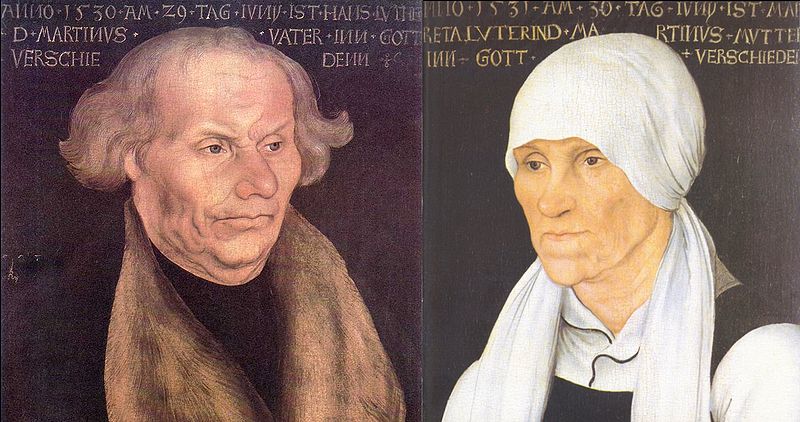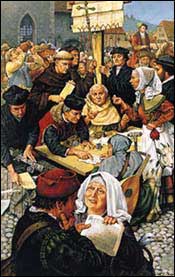
“What we want is not more little books about Christianity, but more little books by Christians on other subjects – with their Christianity latent.”
C. S.Lewis
Interestingly, that is the calling I have been hearing of late–“little books!”,
Abraham Kuyper, Dutch theologian and politician writes, “There is not a square inch in the whole domain of our human existence over which, Christ, who is Sovereign over all, does not cry: ‘Mine!’ ”
Bono, ““If the truth sets us free and it does … Why aren’t Christian singers allowed to ring true?”
“We need more stories and songs that “tell the truth,” as Walker Percy wrote in Signposts in a Strange Land, especially about the human condition. True stories that transform lives and societies. More Uncle Tom’s Cabins and less “little books about Christianity.”
Read the whole of the thought-provoking post from which these thoughts were excerpted.
http://claphamgroup.com/featured/bono-asks-can-christian-artists-ring-true/
Possible Answers to Prayer
| Dante Gabriel Rossetti |
just the one signature – have been duly recorded.
Your anxieties – despite their constant,
entertainment value – nonetheless serve
to bring your person vividly to mind.
a burgeoning, yellow fog of frankly more
concspicuous resentment – is sufficient.
the suffering, the needy poor is sometimes
recognizable to me, if not to them.
righteous indignation toward the many
whose habits and sympathies offend you –
how near I am, with what fervor I adore
precisely these, the several who rouse your passion.
Read more: http://theconnexion.net/wp/?p=9324#ixzz1FpLaOtVL
Under Creative Commons License: Attribution Share Alike
Click button to share on Facebook, Twitter, Digg, Delicious, Reddit … Wikio
Time and Money
 |
| A very pink Irene and I hiking in the Everglades National Park, Florida |
And that’s not a bad thing, necessarily. I know people who have one –or even both–of these preoccupations removed from their lives–and they are NOT happier for it.
I have friends and relatives who have plenty of money, and so do not work. But are left with a lot of restless, undirected energy.
And worse, and almost unthinkable to me, I have acquaintances and relatives for whom time hangs heavy–who do not have anything pressing, compelling or interesting to do with their time. And who are consequently sad and lethargic.
Not having as much as we might wish of either time or money adds the adrenalin and slight stress to our days which makes them more interesting.
* * *
I really hate the axiom, “Time is money.” Not that I deny it. It’s true in the way the E.M. Forster says, “Yes, oh dear, yes, the novel tells a story.”
And time is partly for taking our five talents and making them ten, as in the Parable of the Talents.
Though the idea that “time is money” adds an element of stress and poison to it. Because time is for so much more than making or saving money. It is for us to love God. To love people. To enjoy nature. To enjoy ourselves. To be happy.
* * *
* * *
“Don’t be mean,” he says plaintively. “You know I hate mending. I have so many more interesting things to do.” “Ditto. Ditto,” I say, firmly. And so he sews his own buttons on, and now has 5 additional shirts.
So, we ask the cleaner to clean out the shower. “Does it work? ” he asks surprised. “Of course, it works,” we say. “We started chucking clothes to mend in there five years ago, and so have never used it. The expression on his face makes us laugh, and he laughs too.
* * *
Last time and money thought, and I think our lives would have been happier if had sorted this out earlier. Time is always more precious than money, because money spent can be earned again, and money earned can be used to buy time (by farming out whatever work can be farmed out, cleaning, housekeeping chores, gardening, business admin).
And I think the best use of time is to ask God what he wants you to do with it–and then go do that.
Is God in Everything? Hannah Whitall Smith. Quote for the Day
Hannah Whitall Smith’s “The Christian’s Secret of a Happy Life.”
After praying this for a few days, she had what she described as a vision. She thought she was in a perfectly dark place, and that there advanced toward her, from a distance, a body of light which gradually surrounded and enveloped her and everything around her. As it approached, a voice seemed to say, “This is the presence of God! This is the presence of God!” While surrounded with this presence, all the great and awful things in life seemed to pass before her—fighting armies, wicked men, raging beasts, storms and pestilences, sin and suffering of every kind. She shrank back at first in terror; but she soon saw that the presence of God so surrounded and enveloped herself and each one of these things that not a lion could reach out its paw, nor a bullet fly through the air, except as the presence of God moved out of the way to permit it. And she saw that if there were ever so thin a film, as it were, of this glorious Presence between herself and the most terrible violence, not a hair of her head could be ruffled, nor anything touch her, except as the Presence divided to let the evil through. Then all the small and annoying things of life passed before her; and equally she saw that there also she was so enveloped in this presence of God that not a cross look, nor a harsh word, nor petty trial of any kind could affect her, unless God’s encircling presence moved out of the way to let it.
Her difficulty vanished. Her question was answered forever. God was in everything; and to her henceforth there were no second causes. She saw that her life came to her, day by day and hour by hour, directly from the hand of God, let the agencies which should seem to control it be what they might. And never again had she found any difficulty in an abiding consent to His will and an unwavering trust in His care.
Glory in the heavens and on earth, words. Psalm 19. Blog Through the Bible Project
Psalm 19
For the director of music. A psalm of David.
night after night they reveal knowledge.
3 They have no speech, they use no words;
no sound is heard from them.
4 Yet their voice[b] goes out into all the earth,
their words to the ends of the world.
In the heavens God has pitched a tent for the sun.
5 It is like a bridegroom coming out of his chamber,
like a champion rejoicing to run his course.
6 It rises at one end of the heavens
and makes its circuit to the other;
nothing is deprived of its warmth.
See its changing moods, white as I write. Sometimes a glorious blue, sometimes dappled with clouds, red in the morning, rose turning to vermilion in the evening, the most glorious sapphire in the night. Sometimes a Giotto-blue.
The moon, floating in the wide expanses. The silent, eternal stars. “Le silence eternel de ces espaces infinis” as Pascal puts it.
The things God made speak of him without words in a way Francis of Assisi who is reputed to have said, “Preach the Gospel at all times. When necessary use words,” would have approved of.
refreshing the soul.
The statutes of the LORD are trustworthy,
making wise the simple.
8 The precepts of the LORD are right,
giving joy to the heart.
The commands of the LORD are radiant,
giving light to the eyes.
9 The fear of the LORD is pure,
enduring forever.
The decrees of the LORD are firm,
and all of them are righteous.
than much pure gold;
they are sweeter than honey,
than honey from the honeycomb.
11 By them your servant is warned;
in keeping them there is great reward.
12 But who can discern their own errors?
Forgive my hidden faults.
13 Keep your servant also from willful sins;
may they not rule over me.
Then I will be blameless,
innocent of great transgression.
be pleasing in your sight,
LORD, my Rock and my Redeemer.
I have decided to make it more precious to me by increasing the time I spend with it. People who treasure gold and wealth–and the latter has some importance in my life–spend time earning it. So people who truly treasure God’s word as more precious than gold spend time with with it. As I have resolved to do.
It is also sweeter than honey. For much of my life, until the last few months really, I have been addicted to sweet things, chocolate in particular.
God’s word is sweeter than honey.
I am trying to remember to turn to God rather than to the blood sugar and energy rush of sugary things and chocolate when I need a spike in mood.
God’s word warns us of danger.
And there is great reward in obeying it. Reward from God who can more surely give us the best and surest rewards there are.
David asks forgiveness for his hidden faults, the sort of sins of which we may not be fully aware of at the time of commission, and for which we need a Nathan to announce to us, “You are the man.”
He also asks God to preserve him from wilful sins (as opposed to spur of the moment sin).
I love his concluding prayer,
May these words of my mouth and this meditation of my heart
be pleasing in your sight,
LORD, my Rock and my Redeemer.
Okay, so here’s my challenge to myself, and my dear readers (and I am so honoured that you are reading along).
Do we truly believe that God’s word is more precious than gold, sweeter than honey, and provides great rewards to those who keep it.
Then, let’s look at our schedules, and see where we can carve out time to spend more time with it.
Glory in the heavens and on earth, words. Psalm 19. Blog Through the Bible Project
Glory in the heavens and on earth, words. Psalm 19
Psalm 19
For the director of music. A psalm of David.
night after night they reveal knowledge.
3 They have no speech, they use no words;
no sound is heard from them.
4 Yet their voiceb]”>[b] goes out into all the earth,
their words to the ends of the world.
In the heavens God has pitched a tent for the sun.
5 It is like a bridegroom coming out of his chamber,
like a champion rejoicing to run his course.
6 It rises at one end of the heavens
and makes its circuit to the other;
nothing is deprived of its warmth.
See its changing moods, white as I write. Sometimes a glorious blue, sometimes dappled with clouds, red in the morning, rose turning to vermilion in the evening, the most glorious sapphire in the night. Sometimes a Giotto-blue.
The moon, floating in the wide expanses. The silent, eternal stars. “Le silence eternel de ces espaces infinis” as Pascal puts it.
The things God made speak of him without words in a way Francis of Assisi who is reputed to have said, “Preach the Gospel at all times. When necessary use words,” would have approved of.
refreshing the soul.
The statutes of the LORD are trustworthy,
making wise the simple.
8 The precepts of the LORD are right,
giving joy to the heart.
The commands of the LORD are radiant,
giving light to the eyes.
9 The fear of the LORD is pure,
enduring forever.
The decrees of the LORD are firm,
and all of them are righteous.
than much pure gold;
they are sweeter than honey,
than honey from the honeycomb.
11 By them your servant is warned;
in keeping them there is great reward.
12 But who can discern their own errors?
Forgive my hidden faults.
13 Keep your servant also from willful sins;
may they not rule over me.
Then I will be blameless,
innocent of great transgression.
be pleasing in your sight,
LORD, my Rock and my Redeemer.
I have decided to make it more precious to me by increasing the time I spend with it. People who treasure gold and wealth–and the latter has some importance in my life–spend time earning it. So people who truly treasure God’s word as more precious than gold spend time with with it. As I have resolved to do.
It is also sweeter than honey. For much of my life, until the last few months really, I have been addicted to sweet things, chocolate in particular.
God’s word is sweeter than honey.
I am trying to remember to turn to God rather than to the blood sugar and energy rush of sugary things and chocolate when I need a spike in mood.
God’s word warns us of danger.
And there is great reward in obeying it. Reward from God who can more surely give us the best and surest rewards there are.
David asks forgiveness for his hidden faults, the sort of sins of which we may not be fully aware of at the time of commission, and for which we need a Nathan to announce to us, “You are the man.”
He also asks God to preserve him from wilful sins (as opposed to spur of the moment sin).
I love his concluding prayer,
May these words of my mouth and this meditation of my heart
be pleasing in your sight,
LORD, my Rock and my Redeemer.
Okay, so here’s my challenge to myself, and my dear readers (and I am so honoured that you are reading along).
Do we truly believe that God’s word is more precious than gold, sweeter than honey, and provides great rewards to those who keep it.
Then, let’s look at our schedules, and see where we can carve out time to spend more time with it.
Click button to share on Facebook, Twitter, Digg, Delicious, Reddit … Wikio
Martin Luther: A Psychological Profile

 |
| Martin Luther |
Last night, Roy and I watched a PBS DVD on Martin Luther. Excellent.
 |
|
Portrait of Martin Luther’s parents of Lucas Cranach
|
* * *
 |
|
Johann Von Staupitz
|
 |
|
Big Business–The Catholic Church of Luther’s Day.
|
* * *
Despite the Papal Bull of excommunication, despite the fact that his life would be in danger if he fell into the hands of the Catholic Church, Luther continued with his attacks on it.
“I decided to believe freely and to slave to the authority of no one , whether council, university or pope. I was bound not only to assert the truth but to defend it with my blood and death,” he wrote.
* * *
He discovered a new and powerful weapon on his side–the printing press. For movements to spead, their ideas needed to spread.
The printing press invented in Germany by Gutenberg 30 years before the birth of Luther was to Luther’s day what the internet is to our day. It meant that ideas could travel. They could not be stopped.
“German money in violation of nature flies across the Alps.”
* * *
* * *
Luther was summoned before the Holy Roman Emperor, Charles V at the famous Diet of Worms. Cardinal Aleander, representing the Pope, showed Luther a pile of his books, and asked him if he wrote them, and was willing to recant. Interestingly, for he was just a human being after all, and one potentially facing death at the hands of an unjust institution, he asks for 24 hours to consider his response. Which is famous.
 |
| Luther at the Diet of Worms |
“I do not accept the authority of Popes and councils for they have often erred and contradicted themselves. I am bound by the Scriptures I have quoted and my conscience is captive only to the Word of God. I cannot and will not recant anything for to go against my conscience is neither right nor safe. Here I stand. I can do no other. God help me. Amen.”
One of history’s greatest declarations of exhausted defiance!!
Luther’s statement marks the dawn of a new era, the ordinary person standing up against authority.
It’s a grand moment when an individual ends up standing for something much larger than himself.
He fully expects that the Church will sentence him to death as a heretic, as it did the Czech reformer, Jan Hus (who also appeared at a Council under a guarantee of safe conduct). However, the vote is inconclusive. Luther is free, though his life is in danger from the Catholic church, which combined spiritual, administrative and judicial authority (a dangerous situation).
* * *
Going from the peaks of glory, attention and notoriety to anonymity and invisibility is a frequent Christian experience.
So Luther goes from the drama and intense experience, the elation and energy of the Diet of Worms to a solitary existence hidden in the Wartburg Castle. He regresses into depression, despair and anguish, introspection and melancholy, and had a strong sense that the devil was tormenting him.
And yet again, he snapped out of depression by using the Prozac which had worked in the past: Work.
* * *
And while he was in the Wartburg, Germany’s Peasant Revolts commenced, sparked by Luther’s ideas and writings. Luther was horrified as he saw the destruction the reformation entailed. His ideas turned out to be more radical than he had realized.
Disappointly, he does not support the revolting peasants, but attacks them in vicious prose.
* * *
Concluding comments from the scholars on the program:
“When I die, I want to be a ghost, so that I continue to pester the bishops, priests and godless monks so that they can have more trouble with a dead Luther than they had before with a thousand living ones,” Luther wrote.
Click button to share on Facebook, Twitter, Digg, Delicious, Reddit … Wikio
Biblical Principles for Confrontation and Social Media. Matthew 18
Matthew 18
15 “If your brother or sister sins, go and point out their fault, just between the two of you.
If they listen to you, you have won them over.
16 But if they will not listen, take one or two others along, so that ‘every matter may be established by the testimony of two or three witnesses.’
17 If they still refuse to listen, tell it to the church; and if they refuse to listen even to the church, treat them as you would a pagan or a tax collector.
Public figures– church leaders, politicians, even authors of successful blogs– I believe, can be confronted publicly. The principles of Matthew 18 do not apply in these instances.
What do you think?
- « Previous Page
- 1
- …
- 158
- 159
- 160
- 161
- 162
- …
- 279
- Next Page »






